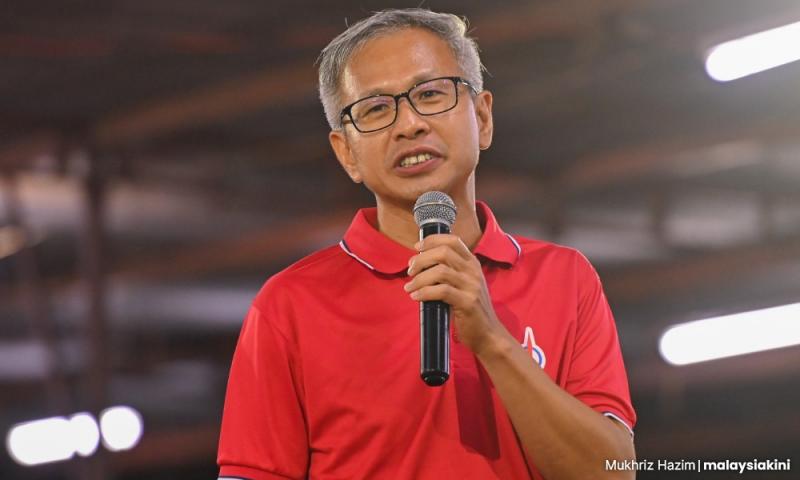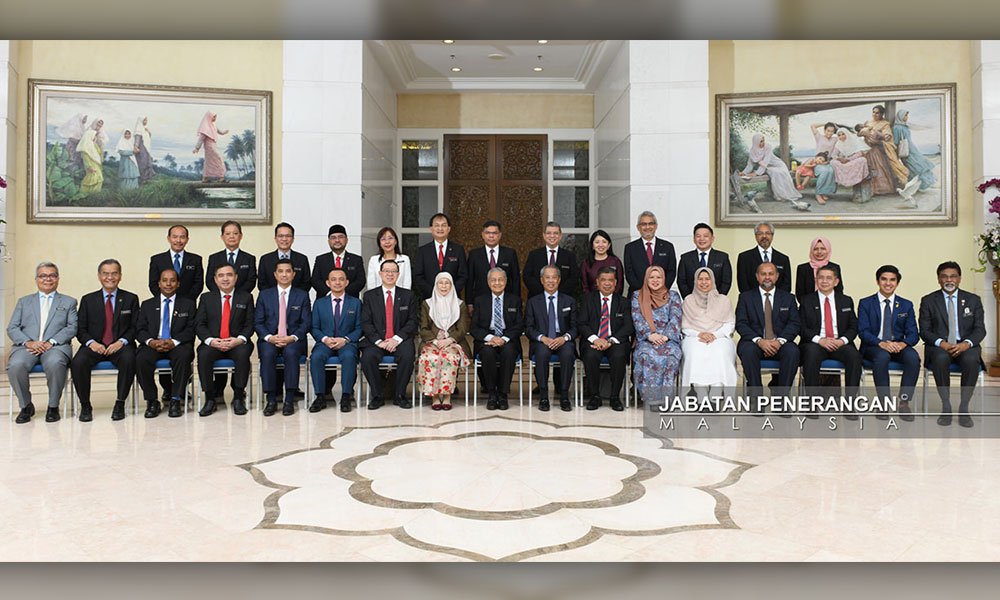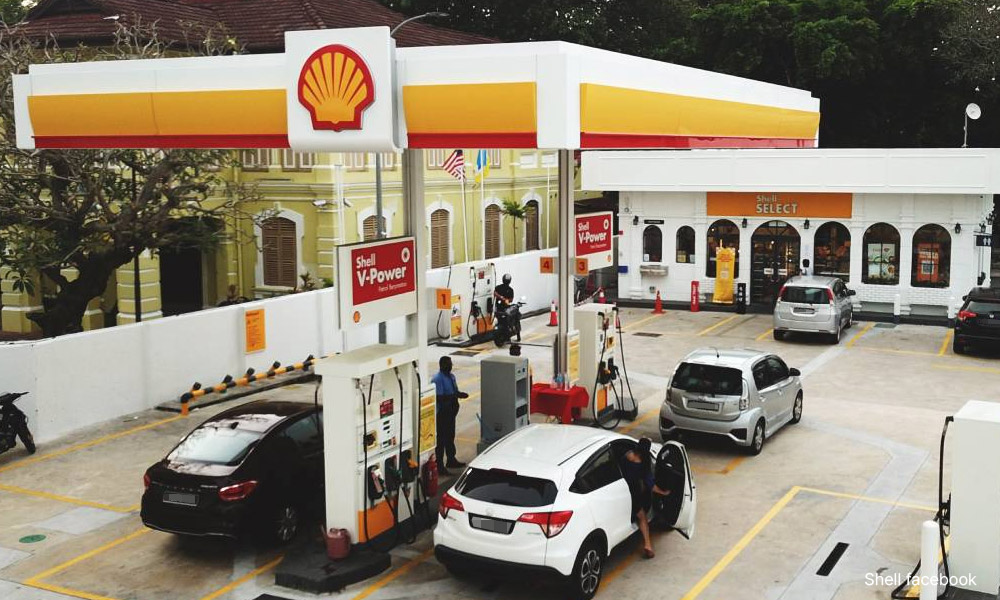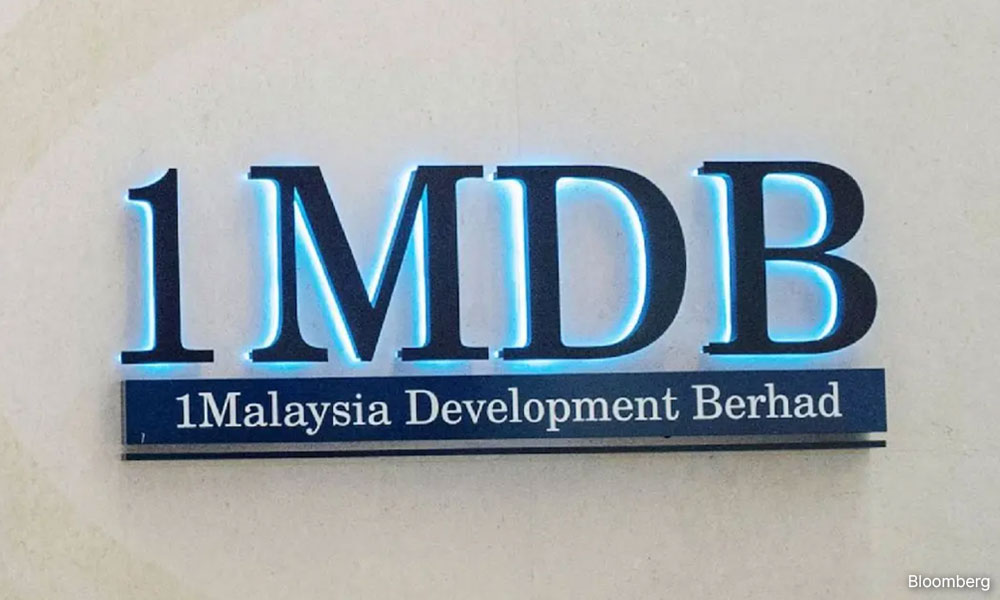
Civil service killed targeted fuel subsidies amid Sheraton Move: Pua
Targeted fuel subsidies were already in the final stages of implementation in early 2020, said former Finance Ministry officer Tony Pua.
However, he said the project was terminated during the change in government that took place that year - but that it wasn’t done by the new administration.
“Once we were kicked out of office, my understanding - and this was my conversation with the subsequent finance minister - was that before he, Tengku Zafrul (Abdul Aziz), came in (to office) the project was already terminated.
“So, the senior civil servant in charge of the project (went) ‘Oh this is not my project, you are out, I quickly terminate it’,” he said.
Pua, who had served as political secretary to Lim Guan Eng when the latter was finance minister from 2018 to early 2020, did not name the officer responsible.
He had said this during an interview on a podcast hosted by fellow DAP comrade Ong Kian Ming - who was the deputy international trade and industry minister during Pakatan Harapan’s first run in Putrajaya.

The Pakatan Harapan cabinet as of July 2019
The Harapan government had in December 2019 announced it was suspending the targeted fuel subsidy programme from being implemented on Jan 1, 2020.
This was ostensibly because the government needed more time to brief the public on the scheme.
The Harapan government then collapsed on Feb 24, 2020, after Bersatu withdrew from the coalition.
There was no cabinet from that day until Muhyiddin Yassin’s new cabinet was sworn in on March 9 that year.
Pua said that policies such as targeted subsidies are often driven by ministers, with poor support from the civil service due to a lack of “buy in”.
“They do it because you ask them to do it,” he said.
He also said that the civil service had preferred targeted subsidies to be channelled via direct cash transfers because it was easier to implement than a more complicated system.
MyKad central to implementation
Detailing the targeted fuel subsidies plan then, Pua said that the assistance would have been given through MyKads, as the identification card was also tied to the Road Transport Department’s database.
Subsidies would be granted based on the model of vehicle used, age of vehicle, and number of vehicles owned.
“We can specify which models exactly we accept, which models we don’t, we can specify that 2l and above we don’t accept, we can specify that (cars aged) 10 years and more we give.
“If you have five Protons, sorry, you don’t qualify because you’re not supposed to be able to afford five Protons, as an example,” he said.
The Harapan government had in December 2019 announced it was suspending the targeted fuel subsidy programme from being implemented on Jan 1, 2020.
This was ostensibly because the government needed more time to brief the public on the scheme.
The Harapan government then collapsed on Feb 24, 2020, after Bersatu withdrew from the coalition.
There was no cabinet from that day until Muhyiddin Yassin’s new cabinet was sworn in on March 9 that year.
Pua said that policies such as targeted subsidies are often driven by ministers, with poor support from the civil service due to a lack of “buy in”.
“They do it because you ask them to do it,” he said.
He also said that the civil service had preferred targeted subsidies to be channelled via direct cash transfers because it was easier to implement than a more complicated system.
MyKad central to implementation
Detailing the targeted fuel subsidies plan then, Pua said that the assistance would have been given through MyKads, as the identification card was also tied to the Road Transport Department’s database.
Subsidies would be granted based on the model of vehicle used, age of vehicle, and number of vehicles owned.
“We can specify which models exactly we accept, which models we don’t, we can specify that 2l and above we don’t accept, we can specify that (cars aged) 10 years and more we give.
“If you have five Protons, sorry, you don’t qualify because you’re not supposed to be able to afford five Protons, as an example,” he said.

He said the formula could be tweaked based on the generosity of the government of the day.
Those who are eligible for subsidies, meanwhile, would have to tap their MyKad at payment terminals at petrol stations in order to get subsidised prices.
The former Damansara MP added that the government at the time had awarded the contract to GHL Transact Sdn Bhd, which operated 80 to 90 percent of payment terminals at petrol stations at the time, as they had made the cheapest offer of around RM20 million.
He said this was a fraction of the projected costs during Najib Abdul Razak’s administration, where estimates were around RM200 million.
“So that policy was in place, development was in progress, and we were finalising the terms of the policy waiting for approval when we got kicked out of government,” he said.
He added that this kind of subsidy system was preferable to direct cash transfers, as people always want to see subsidised prices at the pump, and would not remember that cash handouts were meant to subsidise petrol.
Targeted fuel subsidies have been reintroduced by the current administration starting with diesel, with plans to make RON95 subsidies targeted next year.
The targeted subsidies would be tied to the Central Database System (Padu) which will be launched soon, with households being able to input their income and financial situation for vetting.
‘Civil service helped govt with 1MDB’
Meanwhile, Pua spoke more highly of the civil service in regards to 1MDB.

He said Finance Ministry officers were fairly cooperative with regards to the Harapan’s government’s goals to reduce 1MDB’s debts at the time.
“This was something that even the officers were very much in agreement with, they wanted to reduce the debt, they wanted to reduce the burden on the Finance Ministry.
“Hence, I think the working relationship was quite good in terms of trying to claw back as much money as possible to reduce this burden,” he said.
He added that officers who were part and parcel of the 1MDB scandal due to having acted on directives from the top also cooperated with them.
“We needed their help because they know exactly what took place and from there we were able to work out some of the additional nonsense that we didn’t know about,” he said.
This included how two gas pipeline projects were linked to the 1MDB scandal.
No comments:
Post a Comment